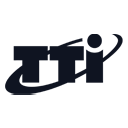
Quectel
Founded Year
2010Stage
IPO - II | IPOMarket Cap
23.29BStock Price
88.40Revenue
$0000About Quectel
Quectel is a provider of IoT solutions, focusing on the development of cellular, GNSS, and Wi-Fi modules, as well as antennas and IoT connectivity services. The company offers products that enable devices to connect to networks, including real-time kinematic (RTK) correction for positioning accuracy and testing and certification services to ensure IoT devices meet compliance standards. It was founded in 2010 and is based in Shanghai, Shanghai.
Loading...
Loading...
Expert Collections containing Quectel
Expert Collections are analyst-curated lists that highlight the companies you need to know in the most important technology spaces.
Quectel is included in 3 Expert Collections, including Auto Tech.
Auto Tech
2,715 items
Companies working on automotive technology, which includes vehicle connectivity, autonomous driving technology, and electric vehicle technology. This includes EV manufacturers, autonomous driving developers, and companies supporting the rise of the software-defined vehicles.
Smart Cities
2,188 items
Conference Exhibitors
5,302 items
Quectel Patents
Quectel has filed 73 patents.
The 3 most popular patent topics include:
- wireless networking
- radio resource management
- computer networking

Application Date | Grant Date | Title | Related Topics | Status |
|---|---|---|---|---|
4/24/2024 | 4/1/2025 | Rotating disc computer storage media, Economic systems, Embedded systems, Computer networking, Electronic toys | Grant |
Application Date | 4/24/2024 |
|---|---|
Grant Date | 4/1/2025 |
Title | |
Related Topics | Rotating disc computer storage media, Economic systems, Embedded systems, Computer networking, Electronic toys |
Status | Grant |
Latest Quectel News
Nov 14, 2025
Image by Freepik Virtually all of the world’s leading vehicle OEMs have launched mass-market connected services in key regions today. Connected vehicles rely on a telematics control unit (TCU), which provides communications between the vehicle and external networks and navigation satellite systems. Examples of connected car services offered include eCall and roadside assistance, stolen vehicle tracking (SVT), vehicle diagnostics, over-the-air (OTA) updates, connected navigation, entertainment services such as music and video streaming, convenience services, Wi-Fi hotspots as well as AI personal assistant services. In their latest report, ‘ The automotive connectivity SoC, NAD and TCU markets ‘, Berg Insight estimates that global shipments of TCUs for both passenger cars and commercial vehicles reached 74.4 million units in 2024. Growing at a compound annual growth rate (CAGR) of 5.0%, global shipments are expected to reach 95.0 million units in 2029. The total global market value of TCUs is forecasted to grow from € 8.6 billion in 2024 to € 11.5 billion in 2029. Berg Insight estimates that 78% of all new passenger cars and commercial vehicles sold worldwide in 2024 were equipped with a TCU, up from 74% in 2023. The vast majority of all sold TCUs today feature 4G LTE connectivity, though many carmakers plan to use 5G TCUs for the next generation of cars that will be released in the upcoming years. Berg Insight expects that 5G TCUs will account for about 70% of total shipments in 2029. The OEM hardware telematics ecosystem spans TCU vendors, network access device (NAD) vendors and system-on- chip (SoC) suppliers. The value chain is characterised by powerful actors at both ends. Vehicle OEMs hold substantial use over their suppliers and dictates both technical specifications and commercial terms. At the opposite end, SoC suppliers maintain significant bargaining power, underpinned by high technological barriers to entry and a highly concentrated market structure. Consequently, NAD and TCU vendors operate in a constrained middle ground between dominant upstream and downstream players. These players must continuously balance the competing demands of OEMs and SoC suppliers, adapting their designs and business terms to maintain these relationships. Success in this environment largely depends on flexibility, technical agility and the ability to align closely with OEM requirements while effectively managing SoC supplier dependencies. The design and development of TCUs is complex as these have to integrate with other vehicle systems, fulfil strict quality standards and ensure performance during the long lifecycle of a vehicle model. For this reason, TCUs are generally developed by established automotive suppliers in cooperation with car manufacturers. Berg Insight ranks LG Electronics as the leading TCU vendor in terms of shipments. Aumovio and Harman were the runners-up, both holding significant market shares. Other major TCU vendors include Actia, Bosch, Denso, Desay SV Automotive, Gosuncn WeLink, Hyundai Mobis, Lear, Lan-You Technology, Marelli, Neusoft Corporation and Valeo. Important players in the TCU ecosystem include SoC vendors and NAD module vendors. The automotive connectivity SoC segment is heavily dominated by Qualcomm, which has longstanding relationships with all of the largest NAD module vendors, TCU suppliers and automotive OEMs. MediaTek ranks second and has pivoted its IoT business towards high-end 5G applications, with a strong focus on the automotive sector in recent years. Other important automotive connectivity SoC vendors are China-based UNISOC and ASR Microelectronics. The SoCs are in turn integrated into NAD modules. NAD module developers include both specialised cellular module providers, as well as TCU vendors that operate as vertically integrated TCU makers with in-house NAD module design capabilities. Quectel is the leading provider of NAD modules for the automotive industry, followed by Rolling Wireless. Other major NAD module vendors include the TCU vendors LG Electronics and Aumovio, as well as specialised module vendors like Favalon (Fibocom), MeiG and Kontron. TCU shipments by region (World 2023-2029) Comment on this article via X: @IoTNow_ and visit our homepage IoT Now Posted on: November 13, 2025
Quectel Frequently Asked Questions (FAQ)
When was Quectel founded?
Quectel was founded in 2010.
Where is Quectel's headquarters?
Quectel's headquarters is located at Building 5, Block B, Technology Oasis 3, Shanghai.
What is Quectel's latest funding round?
Quectel's latest funding round is IPO - II.
Who are the investors of Quectel?
Investors of Quectel include Quectel.
Who are Quectel's competitors?
Competitors of Quectel include Taoglas.
Loading...
Compare Quectel to Competitors
Panorama Antennas specializes in the design and manufacture of RF antenna solutions for wireless communications across various sectors. The company offers a broad range of antennas that support VHF, UHF, LTE, cellular bands, WLAN, WiMAX, and 5GHz frequencies, catering to diverse market needs from public safety to consumer wireless and M2M communications. Panorama Antennas primarily serves industries such as public safety, utilities, transportation, defense, smart metering, and telecommunications. It was founded in 1947 and is based in London, England.

Taoglas provides antennas, IoT components, and design services within the connectivity solutions sector. The company offers products including GNSS and 5G MIMO antennas, embedded and external antennas, and RF cable assemblies. Taoglas serves market verticals such as transportation, smart cities, connected health, aerospace and defense, and data centers. It was founded in 2004 and is based in Dublin 11, Ireland.
Alpha Wireless provides antenna solutions for the telecommunications industry. The company offers products including multiband small cell antennas, tri-sector canister antennas, and bespoke designs, serving sectors that require strong wireless infrastructure, such as 5G network densification and private LTE networks. It is based in Co Laois, Ireland.

TTI Norte operates in the telecommunications sector, providing radiofrequency, antenna, and ground station solutions. The company offers products such as RF communication systems, satellite ground stations, antennas including phase array and flat panel types, amplifiers, and frequency converters. TTI Norte serves sectors including broadcast, aerospace, radio astronomy, deep space, government, and military. It was founded in 1996 and is based in Santander, Spain.

Procom specializes in antenna, DAS, and combiner and filter solutions within the wireless communication industry. The company offers a range of products designed to ensure reliable network performance for various market segments. Procom primarily serves sectors such as Public Safety, Aviation, Telecom, Hazardous Environments, IoT, Transportation, and Industry. It was founded in 1980 and is based in Frederikssund, Denmark.
CCww operates within the telecommunications sector, developing and supplying various custom solutions for 2G, NB-IoT, and NTN IoT UE, including protocol stacks and reference designs, along with customization, integration, testing, and support services. It was founded in 2000 and is based in Bournemouth, United Kingdom.
Loading...
